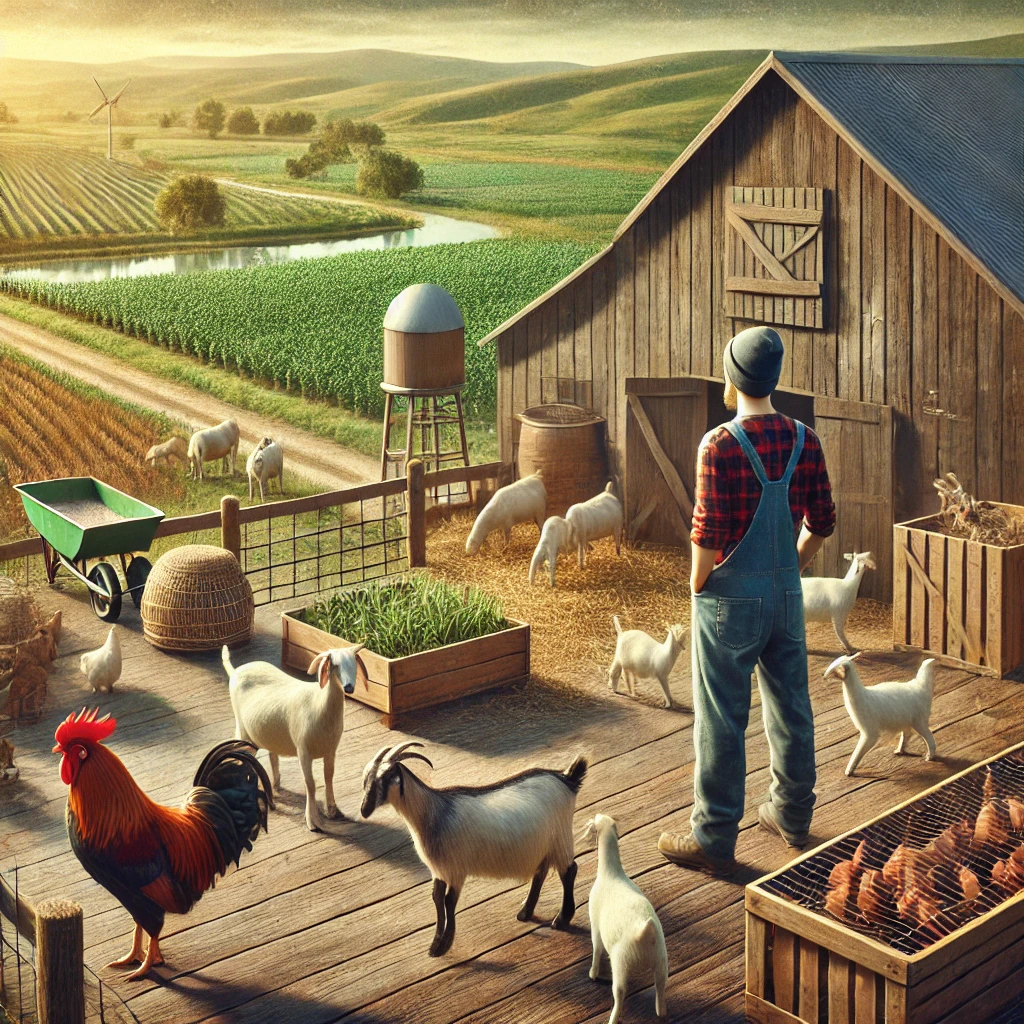Address
304 North Cardinal
St. Dorchester Center, MA 02124
Work Hours
Monday to Friday: 7AM - 7PM
Weekend: 10AM - 5PM
Address
304 North Cardinal
St. Dorchester Center, MA 02124
Work Hours
Monday to Friday: 7AM - 7PM
Weekend: 10AM - 5PM

Raising livestock is an essential part of sustainable living. Whether you want to produce your own meat, eggs, milk, or manure for fertilization, properly managing livestock can help you achieve self-sufficiency. Here’s a guide to raising livestock for a sustainable and productive homestead.
Not all livestock are suitable for every homestead. Choose animals based on your available space, climate, and food production needs. Here are some of the best livestock options for self-sufficiency:
Each type of livestock requires a proper shelter to protect them from predators and harsh weather. Consider these housing needs:
Providing the right diet is essential for healthy and productive animals. Each species has specific dietary needs:
All livestock need a constant supply of fresh, clean water. Use automatic waterers, troughs, or buckets and ensure water doesn’t freeze in winter. Keeping your animals hydrated is key to maintaining their health and productivity.
Livestock produce a lot of waste, but you can turn manure into nutrient-rich compost for gardening. Consider using deep bedding systems, composting manure, and rotating grazing areas to manage waste effectively.
Keeping your animals healthy requires regular checkups, vaccinations, and parasite control. Here are key health practices:
Rotational grazing involves moving animals to different sections of pasture to prevent overgrazing and promote healthy soil. Benefits include:
If you want to raise livestock long-term, you’ll need to plan for breeding. Considerations include:
For those raising animals for meat, humane butchering and processing methods should be considered. Learn the proper techniques for slaughtering, processing, and storing meat, or work with a professional butcher.
Before raising livestock, check local regulations regarding zoning laws, permits, and animal welfare guidelines. Always ensure humane treatment of animals, and follow ethical farming practices for their care and processing.
Raising livestock for sustainable living requires careful planning, responsibility, and ongoing learning. Start small, gain experience, and expand your livestock as you develop confidence and resources. With proper care, your animals will provide you with food, companionship, and a self-sufficient lifestyle.